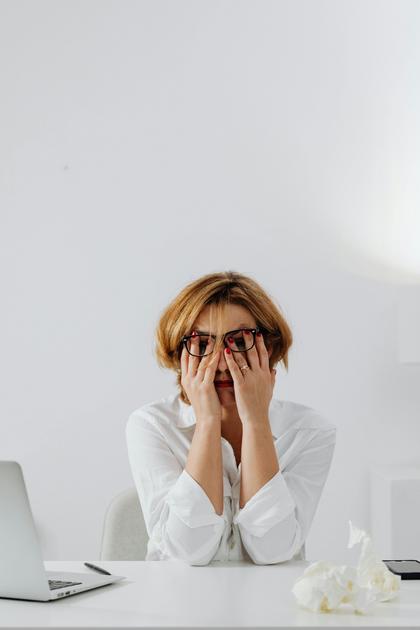Have you ever wondered about the essential vitamins that play a vital role in a woman’s well-being? As women navigate the complexities of life, from hormonal changes to everyday stressors, understanding these nutrients becomes increasingly important. Many women experience fatigue and anxiety, which may stem from nutrient gaps. On the other hand, overdosing on vitamins can lead to unnecessary complications. This blog post will guide you through the essential vitamins for women, ensuring you strike the right balance without fear.
Understanding Essential Vitamins and Their Role
Vitamins play a crucial role in maintaining overall health, especially for women. They are organic compounds that our bodies need in small amounts to function optimally. Essential vitamins such as Vitamin A, B, C, D, E, and K contribute to vital processes including immunity, energy production, and bone health.
Understanding their specific roles can empower women to make informed choices about their health. For instance:
- Vitamin A: Important for vision, skin health, and immune function.
- Vitamin B: This group of vitamins is essential for energy metabolism, brain health, and red blood cell production.
- Vitamin C: A powerful antioxidant that supports immunity and skin health.
- Vitamin D: Crucial for calcium absorption, bone health, and mood regulation.
- Vitamin E: Acts as an antioxidant and supports skin and eye health.
- Vitamin K: Important for blood clotting and bone health.
The Importance of Vitamins for Women Over 30
As women reach their 30s and beyond, the body’s vitamin needs change. Hormonal fluctuations can increase the need for certain vitamins. For example, Vitamin D and Calcium become even more necessary to maintain bone health as estrogen levels begin to decline.
Additionally, stress and lifestyle factors, such as balancing work and family, can lead to nutrient depletion. Inadequate vitamin intake may manifest as fatigue, mood swings, and other health issues.
This makes it vital for women to prioritize their nutritional intake.
Common Nutritional Gaps Faced by Women
Many women unknowingly experience nutritional gaps. Despite efforts to eat a balanced diet, certain factors, such as busy lifestyles, restrictive diets, or personal preferences, can result in deficiencies. Here are some common gaps:
- Iron: Essential for energy; many women, especially those who menstruate, may suffer from low iron levels.
- Folate: Important for fertility and pregnancy, yet often overlooked.
- Vitamin D: Many women do not get enough sunlight exposure to maintain adequate levels.
- Omega-3 Fatty Acids: Essential for heart and brain health, frequently missing in traditional diets.
Effects of Vitamin Overdoses: What You Need to Know
While vitamins are essential, it’s crucial to recognize that overdosing can lead to adverse health effects. For instance:
- Fat-Soluble Vitamins: Vitamins A, D, E, and K can accumulate in the body, leading to toxicity.
- Water-Soluble Vitamins: Generally, these are excreted through urine, but excessive intake of some (like B6) can lead to nerve damage or other issues.
Always consult a healthcare provider before starting any supplement regimen to ensure safety.
Navigating Vitamin Supplements Safely
If you’re considering supplements, navigating the market can be overwhelming. Here are some tips for choosing safe and effective options:
- Quality Matters: Look for brands that undergo third-party testing for quality and purity.
- Consult a Professional: Speak with a doctor or dietitian who can recommend appropriate supplements based on your individual needs.
- Start Slow: Introduce new vitamins gradually to assess your body’s response.
Are you curious about how many women are finding effective solutions without relying on heavy medications? See here how many women are resolving this without heavy medications.
Natural Sources of Essential Vitamins
While supplements can help, obtaining vitamins from food is often the best approach. Here are some rich natural sources of essential vitamins:
- Fruits and Vegetables: Rich in vitamins A and C, along with antioxidants.
- Whole Grains: A good source of B vitamins.
- Dairy Products: Excellent for vitamins D and B12.
- Lean Meats and Fish: Source of iron and omega-3 fatty acids.
Signs You Might Need More Vitamins
Being aware of your body’s signals is key to understanding if you need more vitamins. Signs may include:
- Fatigue or low energy levels.
- Pale skin or hair loss.
- Dry skin or poor wound healing.
- Frequent illnesses or infections.
- Bone pain or muscle weakness.
Creating a Balanced Diet for Optimal Health
A balanced diet involves incorporating a variety of foods to ensure you receive all necessary nutrients. Consider these steps:
- Diverse Choices: Include a wide range of fruits, vegetables, proteins, and grains in your meals.
- Plan Meals: Planning meals ahead can help maintain a balanced diet.
- Listen to Your Body: Pay attention to how different foods make you feel.
Listening to Your Body: When to Seek Help
Your body often gives you clues about what it needs. If you experience persistent symptoms, it may be time to consult a healthcare professional. Listening to your body is an important step towards optimal health.
Finding Effective Solutions for Health Challenges
Many women are overcoming health issues with simple, effective solutions. It’s possible to tackle challenges like fatigue, hormonal imbalances, and more through better nutrition and self-care practices.
Try choosing whole foods, staying hydrated, and managing stress effectively. Remember, it’s a journey, and many women have successfully navigated similar paths. You’re not alone in this, and positive changes are within reach.
Inspire yourself by learning how other women have found relief from their symptoms through simple steps. See here how many women are resolving this without heavy medications.







